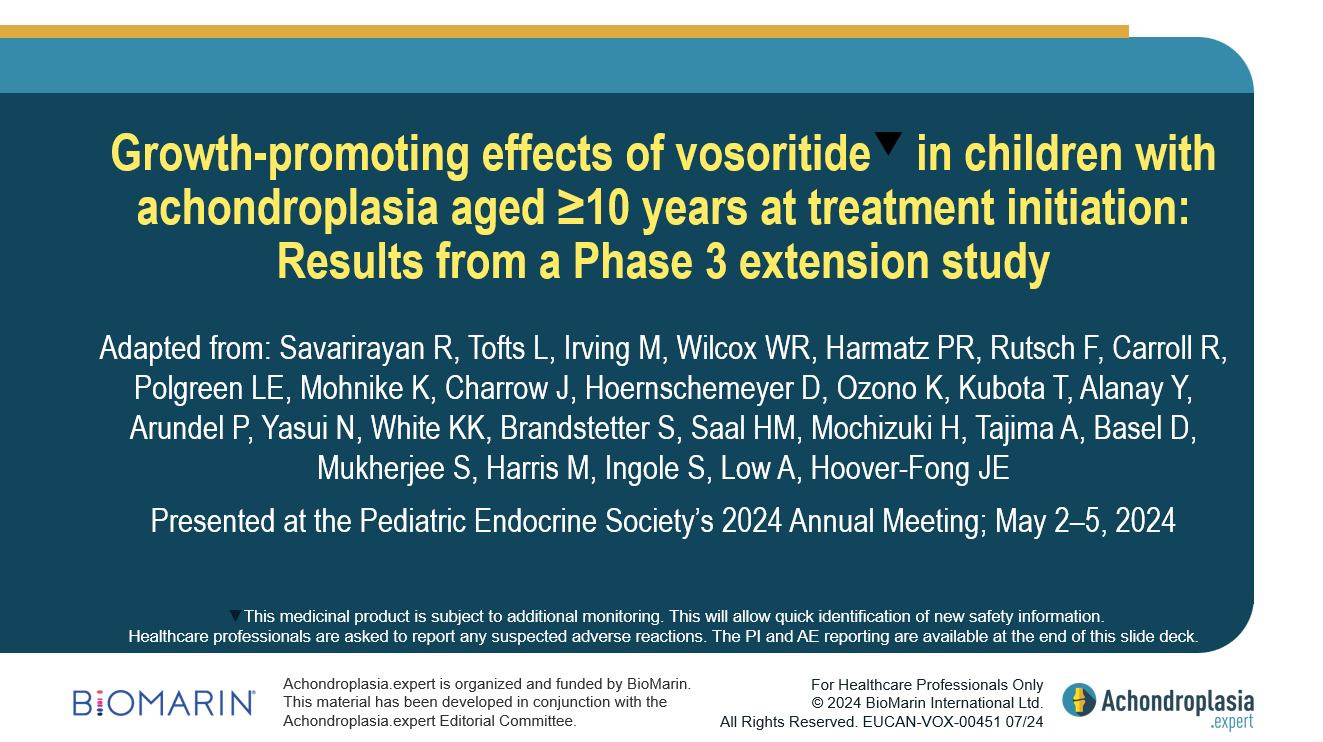Description
In this study, Savarirayan and colleagues report the efficacy and safety of vosoritide in children aged 10 years or older. Data was gathered from BMN 111-301 (a 52-week, phase 3, placebo-controlled trial) and BMN 111-302 (an open-label extension study) with the objective of evaluating the long-term safety, tolerability, and efficacy of daily subcutaneous injections of vosoritide.
119 participants enrolled in the extension study, 49 of whom received their first dose of vosoritide when they were 10 years of age or older on day 1 of either BMN 111-301 or
day 1 of BMN 111-302 if they were previously receiving placebo in BMN 111-301. The efficacy of vosoritide was assessed using 12-month-interval annual growth velocity (AGV) by age intervals referenced to achondroplasia untreated AGV and average-stature AGV. Safety was assessed with rate of adverse events (AEs).
Vosoritide was found to be well tolerated and improved AGV in children with achondroplasia, even when starting treatment at adolescence. Additionally, the AGV improvement persisted during the later stages of puberty. Treatment with vosoritide was not associated with serious or treatment-limiting adverse drug reactions.

References:
Adapted from: Savarirayan R, Tofts L, Irving M, Wilcox WR, Harmatz PR, Rutsch F, Carroll R, Polgreen LE, Mohnike K, Charrow J, Hoernschemeyer D, Ozono K, Kubota T, Alanay Y,
Arundel P, Yasui N, White KK, Brandstetter S, Saal HM, Mochizuki H, Tajima A, Basel D,
Mukherjee S, Harris M, Ingole S, Low A, Hoover-Fong JE
Presented at the Pediatric Endocrine Society’s 2024 Annual Meeting; May 2–5, 2024
